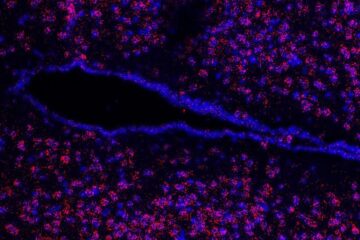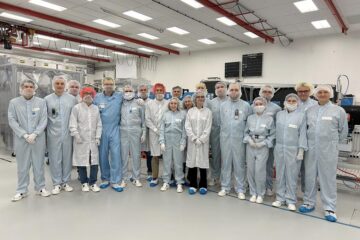Cytomegalovirus Exacerbates Atherosclerosis Through An Autoimmune Mechanism

Atherosclerosis is the main cause of morbidity and mortality worldwide.
Classic risk factors including smoking, diabetes, hypertension and high cholesterol levels are known to play a pivotal role in the pathogenesis of the disease that also recognises a genetic influence. However, it is well known that acute cardiovascular events may happen without the presence of the mentioned common risk factors. Recently inflammation and infectious agents have been shown to play an important role in the onset of acute cardiovascular events.
The online, open-access PLoS ONE publishes a new study on the relationship between Cytomegalovirus infection and atherosclerosis, conducted by Prof. Roberto Corrocher and Claudio Lunardi from the University of Verona and by Prof. Antonio Puccetti from the Institute G. Gaslini in Genova, Italy.
The same researchers have already shown that Cytomegalovirus infection can be responsible of the initial vascular lesions typical of the atherosclerotic process. The mechanism involved in the vascular lesion is of autoimmune origin: antibodies directed against particular proteins of the virus are able to bind molecules expressed on the surface of the cells that line the arterial walls (endothelial cells) and to cause their death (apoptosis) through a mechanism called “molecular mimicry.”
Using a biocomputational technique, the new study shows that the same anti-Cytomegalovirus antibodies, isolated from patients with coronary artery disease, are able to induce the activation not only of genes involved in apoptosis but also of many other genes that encode for proteins involved in different aspects of the atherosclerotic process (lipid metabolism, inflammation, adhesion molecules, etc). For the first time, the study shows that one of these proteins is very important because of its ability to activate cells of the innate immune system involved in the initial phases of the disease.
This new study therefore confirms that antibodies directed against Cytomegalovirus-derived proteins purified from patients with coronary artery disease induce endothelial cells damage and support the hypothesis that virus infection plays a crucial role in mediating the atherosclerotic process. Moreover, these findings contribute to the design of novel preventive and therapeutic strategies.
Media Contact
All latest news from the category: Life Sciences and Chemistry
Articles and reports from the Life Sciences and chemistry area deal with applied and basic research into modern biology, chemistry and human medicine.
Valuable information can be found on a range of life sciences fields including bacteriology, biochemistry, bionics, bioinformatics, biophysics, biotechnology, genetics, geobotany, human biology, marine biology, microbiology, molecular biology, cellular biology, zoology, bioinorganic chemistry, microchemistry and environmental chemistry.
Newest articles

New regulator of eating behaviour identified
The rapidly escalating prevalence of overweight and obesity poses a significant medical challenge worldwide. In addition to people’s changing lifestyles, genetic factors also play a key role in the development…

Harnessing Machine Learning for Breakthroughs with High-Power Lasers
A team of international scientists from Lawrence Livermore National Laboratory (LLNL), Fraunhofer Institute for Laser Technology ILT, and the Extreme Light Infrastructure (ELI) collaborated on an experiment to optimise high-intensity…

AI – Avalanche Intelligence at the SLF
Machine-trained algorithms assess the current avalanche situation in a similar way to humans – with different approaches, strengths and weaknesses. This text has been translated automatically. Forecast for Saturday, February…





















